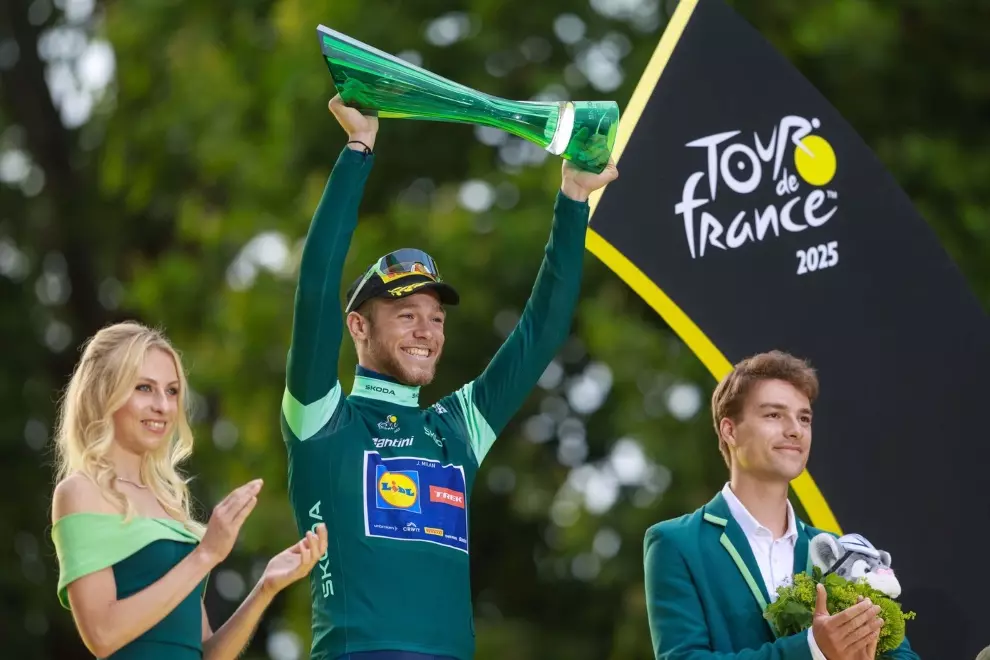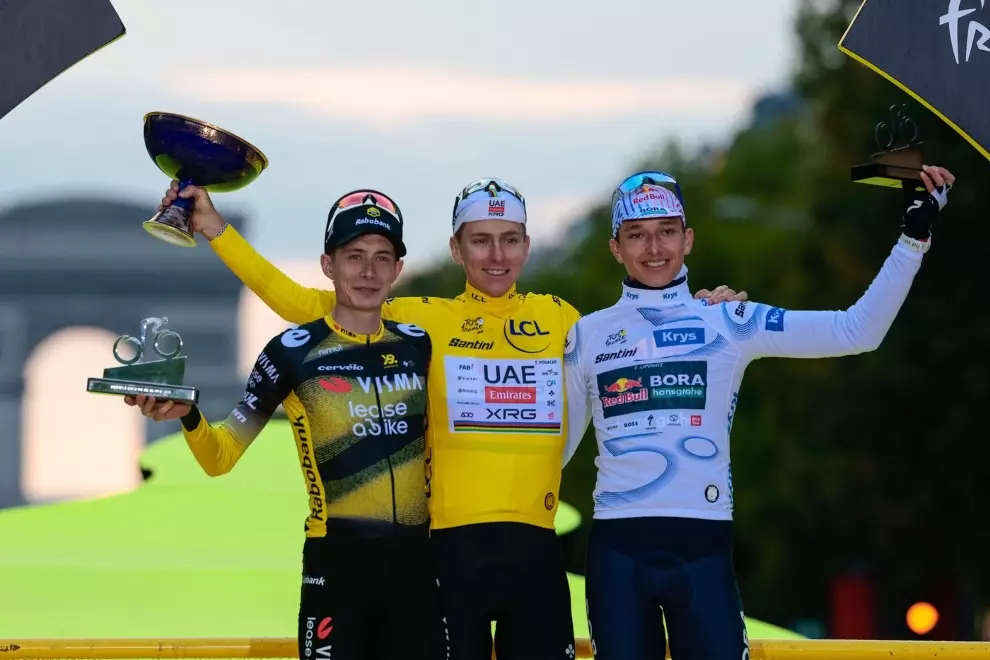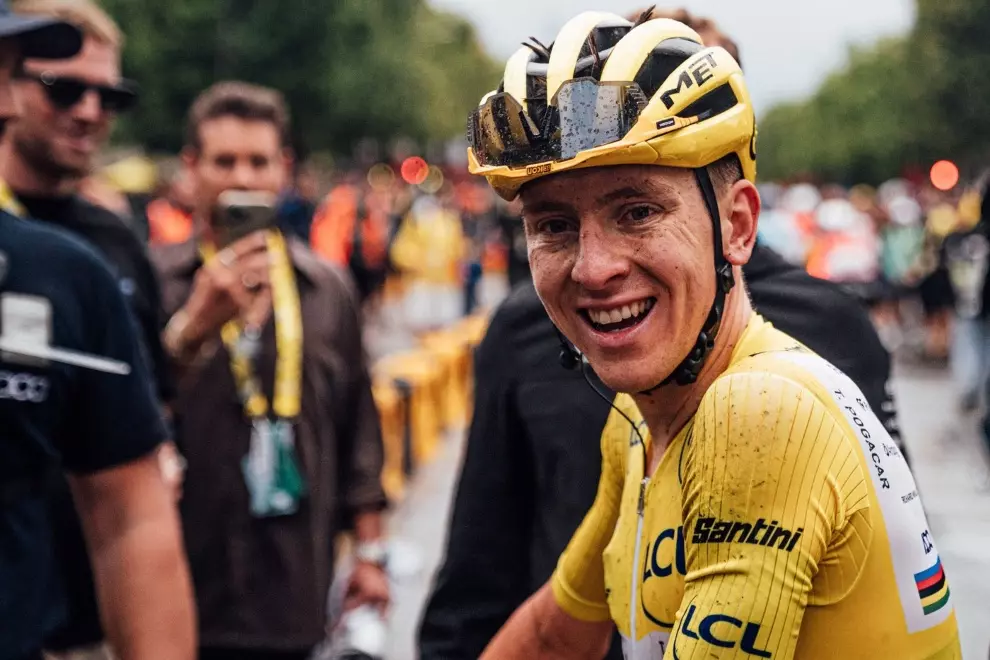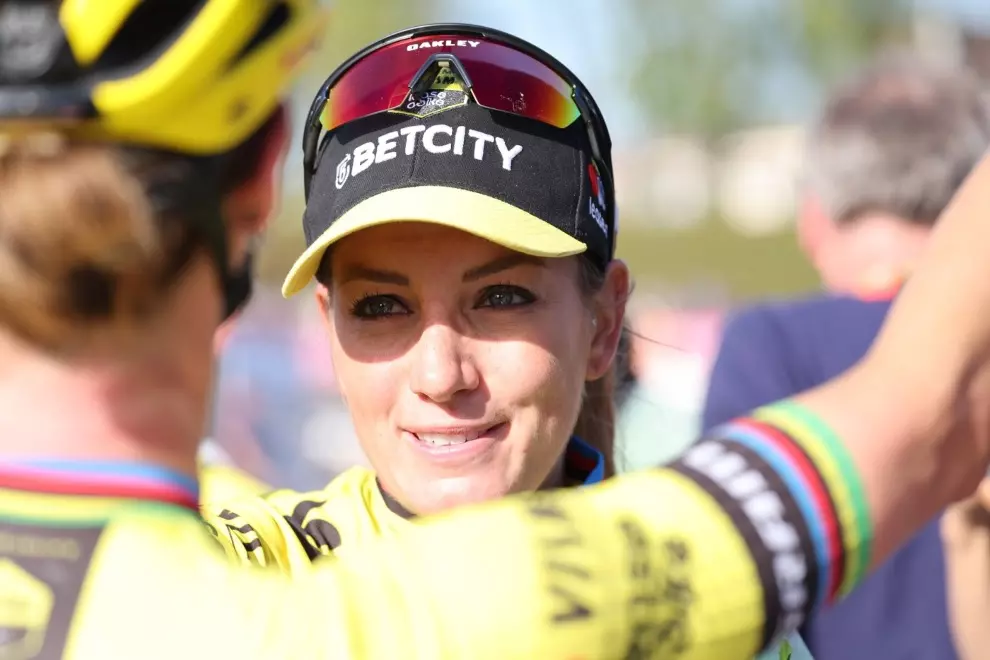That is something of an exaggeration, but not much. To be precise, the route contains six flat stages, but two of them end with summit finishes, so forget a bunch sprint there. In addition, there are six hilly stages, seven mountain stages, a team time trial and an individual time trial. So there is not much for the sprinters to do. And even if one of them somehow scrapes together enough points on those four true flat stages and the intermediate sprints to be in the running for the Škoda Green Jersey, they have to make it over all those mountains and to the nine summit finishes within the specified time to be able to collect their jersey. It’s a long shot, at best.
For the record, there are only two bona fide sprinters with Grand Tour experience in the race: Bryan Coquard (Cofidis) and Kaden Groves (Alpecin-Deceuninck). Less-experienced sprinters in the peloton, such as Marijn van den Berg (EF Education-Easy Post) and Juan Sebastian Molano (UAE Team Emirates), will try to grab a stage or maybe two. In any case, that’s not a lot of sprinters.
Given this reality, I can see that Remco Evenepoel (Soudal-QuickStep), last year’s GC winner and a favorite this year, will win a few stages on the climbs that suit him, because he is an excellent climber and very fast in a sprint, and so will probably collect enough points to wear the Škoda Green Jersey when the race ends in Madrid. He may regard that success and winning the white jersey for best young rider in the race as decent consolation for not bagging the GC victory, which will probably go to one of the two Jumbo-Visma leaders, Jonas Vingegaard and Primož Roglič (who, reports say, is apparently talking to Lidl-Trek about a possible move to that team).
The Vuelta has really not been very sprinter-friendly over the years. Three riders hold the record of four points classification wins in the race: Sean Kelly, Laurent Jalabert and Alejandro Valverde. Kelly, who also won four Tour de France green jerseys, started as a sprinter, but was an all-rounder and superb Classics rider for most of his career; Jalabert was a pure all-rounder, winning the green jersey and the mountains classification at the 1995 Vuelta; and Valverde was a GC rider.
The winner of the Škoda Green Jersey in last year’s Vuelta was Trek-Segafredo’s Mads Pedersen, who is really more of a puncheur than a sprinter and climbs very well. Second was Fred Wright, of Bahrain Victorious, who is not a sprinter. Third was Movistar’s GC rider Enric Mas, and Evenepoel came in fourth. Groves was the only pure sprinter in the top 10, finishing in ninth place, behind the Ecuadorian high-altitude specialist Richard Carapaz (EF Education-Easy Post).
But this year’s course seems almost cruel in its disdain for bunch sprinting – though there is some logic in it. My guess is that because the Vuelta is the last of the Grand Tours and even comes after the World Championships this year, the race organizers wanted to create a race that stood out from all those that preceded it – because this year’s Tour de France was really extraordinary and the Worlds were also special. They are tough acts to follow. The organizers understand that mountain racing is far more dramatic than waiting for a flat stage to reach its climax, the sprint. Summit finishes are especially exciting, which is why two of the flat stages end on a mountaintop. Let’s hope they got it right.




